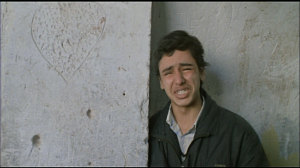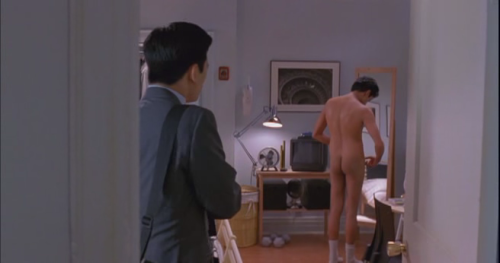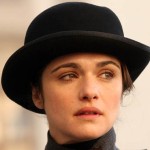Director: Mohsen Makhmalbaf
Screenplay: Mohsen Makhmalbaf
It’s almost impossible to tell fact from fiction, documentary from narrative, in this Iranian New Wave entry, though it is much easier to ascertain that the film is something of a masterpiece. The story of this project’s genesis is extraordinary in itself: director Makhmalbaf, who spent five years in prison as a teenager for stabbing a police officer during a political rally in the late seventies, encountered the very same police officer (Mirhadi Tayebi), now unemployed and looking for work as an actor, some twenty years later at a casting call. The two subsequently decided to collaborate on a film that would revisit the scene of the stabbing, exploring its personal, political, and moral implications for both parties concerned, then and now; A Moment of Innocence is the fruit of that collaboration.
Makhmalbaf’s execution here owes something to the French nouvelle vague, with its abrupt, playfully self-reflexive intertitles and extended interview/audition scenes particularly revealing Godard’s influence. But what makes the film especially engaging on its own terms, and lends it a tremendous amount of heart, is its mingling of the real Makhmalbaf and Tayebi with the young actors they cast as themselves to appear in the film-within-a-film reenactment (Ali Bakhsi as Mohsen and Ammar Tafti as Mirhadi; Maryam Mohamadamini as the young cousin of Mohsen present at the time of the stabbing). Rather than simply dramatizing the events of the past with these young actors, Makhmalbaf allows Bakhsi, Tafti, and Mohamadamini’s own personalities and ideals to inflect the way the story is retold, producing variously confusing, whimsical, and heartbreaking results.
By this method of allowing reality to affect fiction (and vice versa), Makhmalbaf and Tayebi’s original encounter is (or seems to be) thoroughly reinterpreted in A Moment of Innocence, confirming that no one interpretation can disclose the meaning of this encounter, and, more generally, that the passage of time both yields fresh insights into the events of the past, and serves to complicate them. The entire film pays off big time in a single, startling image that should knock the wind out of you and make your mind race.
-Cam


















